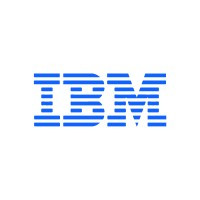Job Title: Lead Automation Engineer
Overview
The Lead Automation Engineer is responsible for managing the automation, instrumentation, and controls (AIC) discipline at the project level, overseeing budgets, and ensuring the successful delivery of projects ranging from simple to highly complex. This role requires a deep understanding of design documentation and field implementation across all project phases. The Lead AIC Engineer coordinates with internal teams and external stakeholders, manages multiple tasks, sets priorities, and provides direction to junior staff. They may operate independently or under the guidance of a Project Manager.
Key Responsibilities
-
Serve as the primary AIC discipline lead on projects, managing scope, schedule, and budget.
-
Interface with clients, vendors, and external partners to ensure alignment and coordination.
-
Support proposal development, resource planning, and scheduling for large or complex projects.
-
Lead field surveys, identify non-compliant conditions, and support field reporting.
-
Develop and deliver internal training materials for the discipline.
-
Produce construction drawing packages and specifications with minimal oversight.
-
Provide advanced support during construction, including RFIs, submittal reviews, inspections, and punch lists.
-
Conduct quality reviews of technical documentation and drive project quality standards.
-
Mentor junior engineers and designers.
-
Lead discipline teams in executing complex design and engineering tasks.
Minimum Qualifications
-
Bachelor's degree from an ABET-accredited program in Chemical, Mechanical, Electrical Engineering, or Robotics/Mechatronics.
-
At least 10 years of experience in instrumentation and control system design, preferably in a design firm.
Preferred Qualifications
-
Professional Engineer (PE) license.
-
ISA Certified Automation Professional (CAP).
-
Proficiency in AutoCAD, Revit, and Microsoft Office.
-
Expertise in discipline-specific software and GMP manufacturing environments.
-
Advanced experience in instrumentation and control system design, including:
-
Network architectures
-
Instrument location drawings, IO lists, datasheets
-
Specifications (construction, hardware/software, functional)
-
Control system schematics, panel drawings, and wiring plans
-
P&ID development
-
Familiarity with electrical and mechanical codes, and industry standards such as:
-
21 CFR Part 11
-
ISPE GAMP
-
ASME BPE
-
ISA-88 / ISA-95 / ISA-106
-
Experience with Safety Instrumented Systems and Electrical Classified Design.
-
In-depth knowledge of industrial control systems (DCS, SCADA, PLC, BAS/BMS, EMS/CMS) and platforms (e.g., DeltaV, Rockwell, Siemens, Ignition).
-
Understanding of communication protocols (Ethernet-IP, BACnet, IO-Link).
-
Strong coordination skills with cross-discipline teams, vendors, and construction partners.
-
Ability to evaluate and consult on Industry 4.0 technologies in pharmaceutical environments, including:
-
Robotics (AMRs, AGVs)
-
Automated Storage and Retrieval Systems (ASRS)
-
Converged IT/OT architectures
-
AI/ML data solutions
-
Electronic Batch Records / MES
-
Virtual and Augmented Reality
-
Vertical and horizontal system integration











